第9章
Gaetano Pisani's talents as a composer had been chiefly exhibited in music appropriate to this his favourite instrument, of all unquestionably the most various and royal in its resources and power over the passions.As Shakespeare among poets is the Cremona among instruments.Nevertheless, he had composed other pieces of larger ambition and wider accomplishment, and chief of these, his precious, his unpurchased, his unpublished, his unpublishable and imperishable opera of the "Siren." This great work had been the dream of his boyhood, the mistress of his manhood; in advancing age "it stood beside him like his youth."Vainly had he struggled to place it before the world.Even bland, unjealous Paisiello, Maestro di Capella, shook his gentle head when the musician favoured him with a specimen of one of his most thrilling scenas.And yet, Paisiello, though that music differs from all Durante taught thee to emulate, there may--but patience, Gaetano Pisani! bide thy time, and keep thy violin in tune!
Strange as it may appear to the fairer reader, this grotesque personage had yet formed those ties which ordinary mortals are apt to consider their especial monopoly,--he was married, and had one child.What is more strange yet, his wife was a daughter of quiet, sober, unfantastic England: she was much younger than himself; she was fair and gentle, with a sweet English face; she had married him from choice, and (will you believe it?) she yet loved him.How she came to marry him, or how this shy, unsocial, wayward creature ever ventured to propose, I can only explain by asking you to look round and explain first to ME how half the husbands and half the wives you meet ever found a mate! Yet, on reflection, this union was not so extraordinary after all.The girl was a natural child of parents too noble ever to own and claim her.She was brought into Italy to learn the art by which she was to live, for she had taste and voice; she was a dependant and harshly treated, and poor Pisani was her master, and his voice the only one she had heard from her cradle that seemed without one tone that could scorn or chide.And so--well, is the rest natural? Natural or not, they married.This young wife loved her husband; and young and gentle as she was, she might almost be said to be the protector of the two.From how many disgraces with the despots of San Carlo and the Conservatorio had her unknown officious mediation saved him! In how many ailments --for his frame was weak--had she nursed and tended him! Often, in the dark nights, she would wait at the theatre with her lantern to light him and her steady arm to lean on; otherwise, in his abstract reveries, who knows but the musician would have walked after his "Siren" into the sea! And then she would so patiently, perhaps (for in true love there is not always the finest taste) so DELIGHTEDLY, listen to those storms of eccentric and fitful melody, and steal him--whispering praises all the way --from the unwholesome night-watch to rest and sleep!
I said his music was a part of the man, and this gentle creature seemed a part of the music; it was, in fact, when she sat beside him that whatever was tender or fairy-like in his motley fantasia crept into the harmony as by stealth.Doubtless her presence acted on the music, and shaped and softened it; but, he, who never examined how or what his inspiration, knew it not.All that he knew was, that he loved and blessed her.He fancied he told her so twenty times a day; but he never did, for he was not of many words, even to his wife.His language was his music,--as hers, her cares! He was more communicative to his barbiton, as the learned Mersennus teaches us to call all the varieties of the great viol family.Certainly barbiton sounds better than fiddle;and barbiton let it be.He would talk to THAT by the hour together,--praise it, scold it, coax it, nay (for such is man, even the most guileless), he had been known to swear at it; but for that excess he was always penitentially remorseful.And the barbiton had a tongue of his own, could take his own part, and when HE also scolded, had much the best of it.He was a noble fellow, this Violin!--a Tyrolese, the handiwork of the illustrious Steiner.There was something mysterious in his great age.How many hands, now dust, had awakened his strings ere he became the Robin Goodfellow and Familiar of Gaetano Pisani! His very case was venerable,--beautifully painted, it was said, by Caracci.An English collector had offered more for the case than Pisani had ever made by the violin.But Pisani, who cared not if he had inhabited a cabin himself, was proud of a palace for the barbiton.His barbiton, it was his elder child! He had another child, and now we must turn to her.
How shall I describe thee, Viola? Certainly the music had something to answer for in the advent of that young stranger.
For both in her form and her character you might have traced a family likeness to that singular and spirit-like life of sound which night after night threw itself in airy and goblin sport over the starry seas...Beautiful she was, but of a very uncommon beauty,--a combination, a harmony of opposite attributes.Her hair of a gold richer and purer than that which is seen even in the North; but the eyes, of all the dark, tender, subduing light of more than Italian--almost of Oriental--splendour.The complexion exquisitely fair, but never the same,--vivid in one moment, pale the next.And with the complexion, the expression also varied; nothing now so sad, and nothing now so joyous.